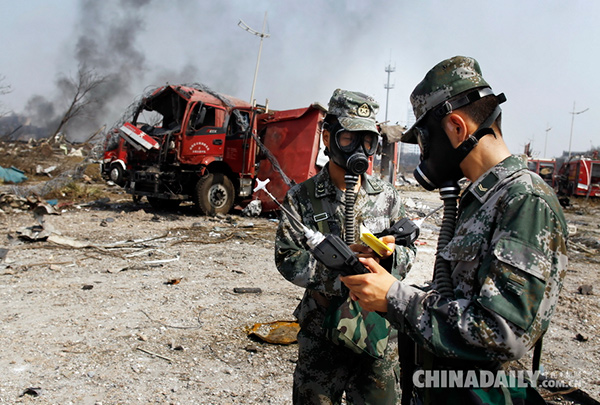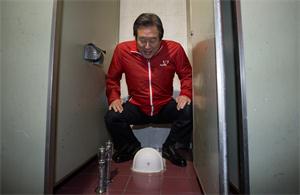Timely release of key information important
(China Daily) Updated: 2015-08-18 07:42
 |
|
Air quality is monitored amid suspicions that the warehouse stored dangerous chemicals. [Photo by Zhu Xingxin/chinadaily.com.cn] |
The seventh news conference for the massive explosions in Tianjin, which was held on Monday, has drawn special attention amid rising media and public questioning of the timeliness, sufficiency and effectiveness of previous information disclosures. Indeed, there is still plenty of room for the municipal government to do a better job in disclosing information, which is crucial for managing a crisis on the magnitude of the one in Tianjin.
According to Monday's news conference, the death toll from the explosions rose to 114 after rescuers found two more bodies in the debris; 70 people remain missing. Local authorities also confirmed that the air quality around the site was normal.
The news conferences for the blasts have bewildered many. Since the weekend, media organizations, such as People's Daily website and Beijing News, have discussed at length the "knowns" and the "unknowns" arising from the previous six press conferences.
Due to incomplete information and the dodging of sensitive questions, the public and media have been left with more questions than answers after each news conference. When meeting the media, some Tianjin officials have used expressions such as "don't know", "unclear" or "need further consultations with other colleagues". This shows their lack of preparation and coordination with different government bodies.
When a tragedy such as the one in Tianjin occurs, the public naturally turns to the government to learn what happened. If the information from the government is delayed or insufficient, it only arouses suspicion and mistrust.
There have been incidents in the past when the untimely disclosure of information led the public to suspect a cover-up, and that in turn tarnished the credibility of government organizations.
True, coping with the aftermath of the Tianjin blasts is likely to prove challenging due to their complexity, difficulty and severity. The involvement of both central and municipal government bodies, and civilian and armed police forces, requires efficient coordination, as well as smooth channels for information exchange.
During a visit to the site of the blasts on Sunday, Premier Li Keqiang called for environment staff to monitor the site around the clock and release accurate and authoritative information, as the public are greatly concerned about the air, water and soil quality around the blast site.
There should not be any concealment or omission, and information should be disclosed timely, accurately, and in an open and transparent manner, Li stressed.
Li's demand should extend to all information about the blasts until all the unknowns behind the incident are known.











